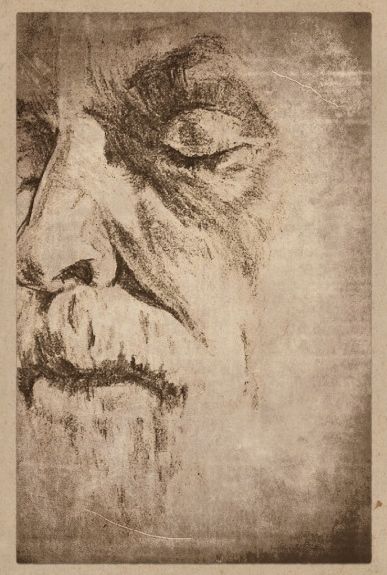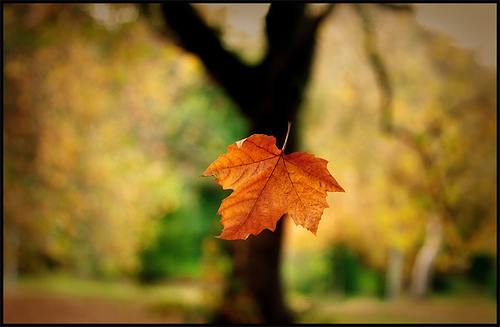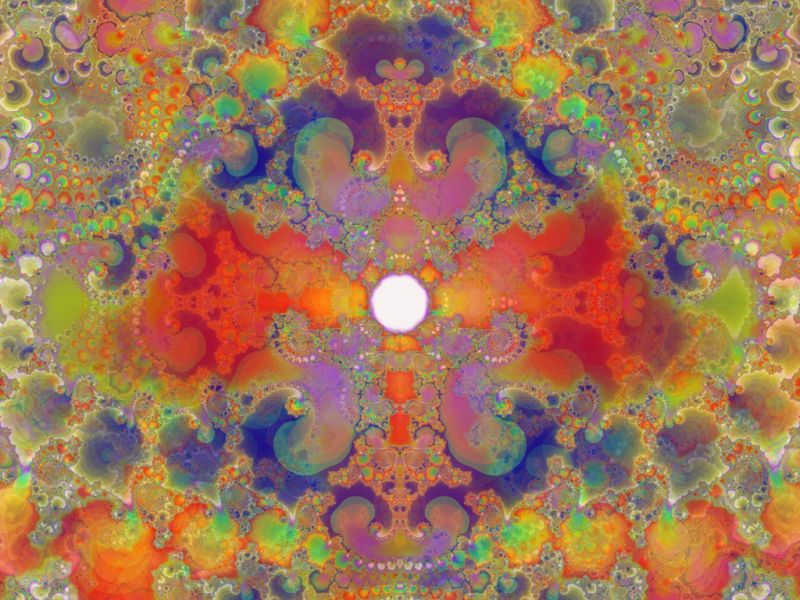Meditation: A Compass and a Path
 An Interview with Dr. Paul R. Fleischman
An Interview with Dr. Paul R. Fleischman
How would you define meditation?
First off, I’d like to clarify that whenever I talk about meditation, I’m really talking specifically about my own experiences with a technique called Vipassana, which I learned in 1974 from Mr. S.N. Goenka, and have been teaching since 1986 under his guidance.
Meditation is a form of self observation. In Vipassana meditation, the unique feature is to observe oneself at the level of sensation. Or more specifically, it is to cultivate the capacity for relatively constant, thorough observation of the arising and passing of body sensations. Along with that observation is a concurrent understanding that these body sensations that are arising and passing are sharing the property of all reality. All reality is the aggregation of smaller things into bigger things, followed by their disaggregation. Things are in a constant flux. So in meditation, first, one is cultivating a capacity for self-observation with increasing ability, and as one develops this ability both in body and mind, one begins to observe universal principles in the context of one’s own mind and body.
That said, I can’t emphasize enough, the role of direct experience. I was at a conference, and different people were asked to talk about meditation. The organizers asked each of us, “How long will it take you to share a baseline definition of meditation?” One said 20 minutes, one said he would need at least an hour, and when it came to me, I told them that I needed ten days. That’s probably the worst marketing strategy. But in our experience, we emphasize personal experience, and we’ve found from having taught hundreds of thousands of students around the world, that it takes about that long for a person to have direction experience of what meditation really is.
It seems to me that the forces of creation, the laws of nature, out of which this mind and body arose, must be operative in me, now, continuously, and whenever I make an effort to observe them. The activity of creation must be the original and continuing cause of my life. I would like to know these laws, these forces, and observe, even participate in, the ongoing creation.
Can you share what the purpose of meditation is from your perspective?
 At its root, meditation is a compass, and a path that gives you internal guidance about how to live. It leads you towards those states of mind in which wholesome states arise more frequently and unwholesome states arise less often. It’s as simple as that. Another way to put it is that it is the passage from ignorance to awakening, a path from ignorance to a place where we try to consciously direct our life-force to do what helps other people, not do what harms, and to purify our life. It makes us more useful people and kinder people -- and while it may reduce some of the stress that leads to illness, it’s not focused on cure. It’s focused on the quality of life inside the practitioner – intrinsically a social being whose quality of life depends on mental states, and how these mental states manifest in a social context.
At its root, meditation is a compass, and a path that gives you internal guidance about how to live. It leads you towards those states of mind in which wholesome states arise more frequently and unwholesome states arise less often. It’s as simple as that. Another way to put it is that it is the passage from ignorance to awakening, a path from ignorance to a place where we try to consciously direct our life-force to do what helps other people, not do what harms, and to purify our life. It makes us more useful people and kinder people -- and while it may reduce some of the stress that leads to illness, it’s not focused on cure. It’s focused on the quality of life inside the practitioner – intrinsically a social being whose quality of life depends on mental states, and how these mental states manifest in a social context.
I would like to know myself. It is remarkable that while ordinarily we spend most of our lives studying, contemplating, observing, and manipulating the world around us, the structured gaze of the thoughtful mind is so rarely turned inwards.
The common perception of meditation is that it is a very personal experience, and in recent times, the emphasis seems to be on its utilitarian value. What are your thoughts?
In order to take that journey from ignorance to wisdom, from ignorance to wholesome states of mind, the first thing is to embrace a moral attitude. It is true that we’ve gotten into a situation where the focus is on derivatives of meditation, like mindfulness based stress reduction -- they’ve selected a few pieces and decided to delete the full spectrum of attitudes and behaviors, in order to streamline it. And they emphasize the utility of it in curing illness, making it a major of focus of research in medical schools. But as a retired psychiatrist, I have to be clear that meditation isn’t a treatment -- so I don’t advocate it as a treatment and don’t use it that way.
Our emphasis is that meditation is useful but it’s not a treatment for a disease. It’s a useful and practical thing but it exceeds these practical uses, and it’s not a treatment for illness. If it’s a treatment, then it’s a treatment for the human condition: we are born, here for awhile and then we die. Meditation is a treatment for that universal condition.
There are two things that are often deleted from modern expositions that we want to include here: first and foremost, a willingness to embrace a moral attitude right from the start. And the second thing is movement – it’s a path with a direction. It’s not merely “be here now” – it’s not being in the moment only – of course it includes that, but it’s a life path leading away from ignorance towards wisdom.
To sit is to know myself as an unfolding manifestation of the universals of life. A gripping, unending project. Hopefully one I can pursue even when I look into death’s funnel. For me, this knowing is a great force, and a great pleasure.
Can you say more about these moral attitudes?
Since meditation is about developing one’s mental states as a social being and a self-integrated being, the essence of the path is to have certain moral attitudes. So one begins the path with a statement of will towards those attitudes. One doesn’t have to have achieved them, but one initiates the path by taking the attitude that that’s where one intends to go. It’s like saying that meditation is the path between California and New York and if people don’t want to go east, then there’s no point starting out on that path. It’s perfectly okay to start with a tentative attitude –‘I’m willing to go east, but have no idea if these roads go there.’ That hesitancy, a reasonably skeptical doubt is acceptable – but you have to agree that you want to head in that direction.
Can this skepticism actually play a helpful role in one’s progress?
It is helpful to evaluate oneself and the path itself so that you’re not foolishly or blindly following a pretense that doesn’t lead to where it claims. The West to some degree is defined by a scientific mindset. But there’s a lot of debate about what constitutes science. Robert Merton, a sociologist who was at Harvard, gave an interesting definition: “Science is organized skepticism”. So if you’re not skeptical, you run the risk of being gullible. But science is not random skepticism, it’s organized and systematic. “I don’t believe this. Prove it to me.” That’s science. It’s a systematic skepticism and that should be the goal of all modern people. So we’re not gullible and we’re following truth. This is, of course, different from mere contentiousness.
What is the role, then, of logic versus inner experience?
Since we’re practicing to live our lives differently, we put strong emphasis on one’s own experience. Our baseline data is our personal experience. And although logic, reason and external evidence should all play a role, ultimately the only evidence that really counts is whether I feel my life is improving.
In meditation first one is cultivating a capacity for self-observation. So though we may know something scientifically, in meditation we actually begin to experience it as the basis of who we are. Meditation contains the full development: The capacity to observe, and the capacity to observe what the observations mean, and the development of being able to apply the meaning of these observations to an increasingly broader field of understanding, and finally, immediate, powerful implications in one’s own life.
My quest for knowing is not merely objective and scientific. This mind-and-body is the vessel of my life. I want to drink its nectar, and if necessary, its sludge, but I want to know it with the same organic immersion that sets a snow goose flying ten thousand miles every winter and spring.
 What is the role of detachment in meditation? How does detaching help us become generous?
What is the role of detachment in meditation? How does detaching help us become generous?
The detachment in meditation is to oneself, one sees that ‘the self’ is impermanent and one detaches from that. Wholesome states of detachment from self are those in which one is not bound or held by self-absorption. Therefore one is free -- not bound, not held -- to use one’s time, which is temporary and limited, to do wholesome things. Ultimately these wholesome things make one feel good, so there’s a selfishness involved, but also a selfless-ness in doing things that make others feel good. In this kind of detachment, there is a deep connection to compassion, generosity.
Sitting pushes me to the limit of my self-directed effort; it mobilizes my willed, committed direction, yet it also shatters my self-protective, self-defining maneuvers, and my simple self-definition. It both builds and dismantles “me.” Every memory, every hope, every yearning, every fear floods in. I no longer can pretend to be one selected set of my memories or traits.
Can you start by describing what actually happens when someone tries to meditate?
What actually happens when you try to meditate is you daydream an enormous amount. And you don’t do what you’re told to do and almost all your daydreaming has two qualities: fear or desire Whether it’s a delightful reverie about something you do want, or a fear of something you don’t want, in each case you’re generating an anticipatory future fantasy and then having an emotional reaction. The reaction is to the fantasy that you just generated, and in either case, you aren’t aware that you are living in a fabricated world. That is, not until you come back to the undeniable truth of present moment, reality, manifesting in the arising and passing of sensations. That’s actually the real state in which those fantasies are arising.
Another way to describe what happens is that meditation is a stormy, colorful, highly personal creative effort. It’s creative because you have to find your own way through this kaleidoscope of mentation – mental fabrications of desire and fear. And you have to find your way through it back to the basic reality of truth – our notion of self is actually an aggregate of little things compounded into a temporary system. So the process varies from person to person and is filled with daydreams and fears, but also the meditative emotions of calming, soothing, cessation of that mental instability.
Sitting helps me overcome my deepest fears. I become freer to live from my heart, and to face the consequences, but also to reap the rewards of this authenticity. Much of what I called pain was really loneliness and fear. It passes, dissolves, with that observation
 So then how does watching that kaleidoscopic activity help you engage more effectively with life?
So then how does watching that kaleidoscopic activity help you engage more effectively with life?
Both the fears and the wishes are relatively unwholesome, being based in fantasy and a mental presentation of something which is not in fact existent. Wholesome states are based on what is actually present. And what is actually present is many compounds in the process of being built and decaying. In fact, all living things are compounds in the process of being built and decaying but all living things are predominantly not able to meditate. We are among the few and the lucky. So all those other beings are unable to practice detachment from self, from a recognition of reality. Most are unable to understand impermanence and are being driven by the self, which is the summary sensation.
On the other hand, the wholesome states that arise in meditation are more realistic. They are less driven by anticipation and more capable of organizing deep realism – I don’t mean pragmatic strategy – I mean a recognition of impermanence and a life that’s based on detachment from self and compassionate, engaged sympathy towards others. So the connection between this internal kaleidoscope of delusion and engagement is this: by reducing the noise, these deep realistic states arise. These states are not at all strategic, in that they aren’t geared toward trying to accomplish a certain pre-defined aim. Instead, this deep realism is such that it becomes a foundation, and applies to all situations in a way that is profoundly important: it affords the freedom to truly engage.
It seems paradoxical that by going within you are able to connect more deeply externally.
I’d call it an irony. When I started meditation in the 1970s, people like my parents would say that “Meditation is staring at your navel. It’s self absorbed and for selfish people, a narcissistic activity.” An analogy I developed to explain why that’s not true: I’d been through medical school and I’d say that when you’re in medical school, you go in a room, you close the door and you don’t come out for four years. But no one says that’s selfish. Everyone knows that it is preparation to do something valuable for society. It takes four years and it’s not selfish. So I if I meditate every day for two hours, why is that hard to understand? That’s preparation for the rest of my day – it’s a self education and one that you want to renew everyday. Because this tendency towards falsely identifying with the kaleidoscopic activity is so strong that continually educating the self becomes the most important thing.
I sit to anchor my life in certain moods, organize my life around my heart and mind, and to radiate out to others what I find. Though I shake in strong winds, I return to this basic way of living.
Paul R. Fleischman practiced psychiatry for more than 30 years. He is also a Vipassana meditation teacher under the guidance of S.N. Goenka, and the author of various books. Quotations above are from his article, "Why I Sit."
SHARE YOUR REFLECTION
8 Past Reflections



On Mar 30, 2012 Vivienne wrote:
Thank you Acharya Paul. Your insights encourage my practice in the visionary path of establishing sila in the world. The ethical compass/sila supports me in steering clear in western culture as it pertains to all relationships, including courtship/dating. It's heartening. As your essay "Karma & Chaos" so wonderfully describes, there is a divine math to things. Metta & Thanks.


On Mar 24, 2012 James wrote:
I have been meditating for 3 years and find this explanation resonant with my daily practice



On Mar 20, 2012 Noor Af wrote:
am sorry for not having timer to complete reading about the whole article because there are some things i have to clean first. it is a local problems.
then It is my surprise that you disabled the web which is like I hurt you.hmmmmm should remove what you connected it to good both of us. huh ! you know it is not good because I didn't sign the systems' contracts so accept clear provocations for the entrepreneurs huh. take the hell out of the web which is the helper of poor. you even didn't tell me that u stopped men's business for fkc's sake.
also what you wrote last night is what you practice in the real places so am not so stupid to trust it was a sensational shit.
whatever I can't get time to look such those brutal things because am having local problems and fungus in my throat so I have to clear these two then come for international things.
Damn all those that don't trust

On Aug 21, 2021 Anna Tasya Cindy Wika wrote:
Kereta Jepang Yang Unik – Keramahan dan fotogenik Tama sang kucing bukan hanya populer di kelompok beberapa penumpang kereta Kishigawa. https://negeri-dongeng.com/ Tapi juga membuat ‘sang kucing kepala stasiun’ mendapatkan gelar bangsawan.
Dalam satu pagi yang ceria pada bulan Mei, di stasiun kereta Idakiso, Jepang, satu ekor kucing kecil berjemur sambil dipotret oleh segerombolan turis. Selanjutnya seorang bocah mengelitik perut berbulunya.
Post Your Reply